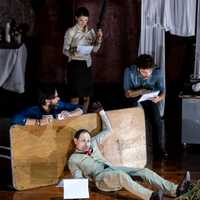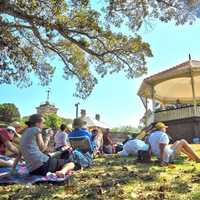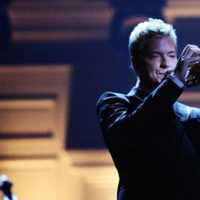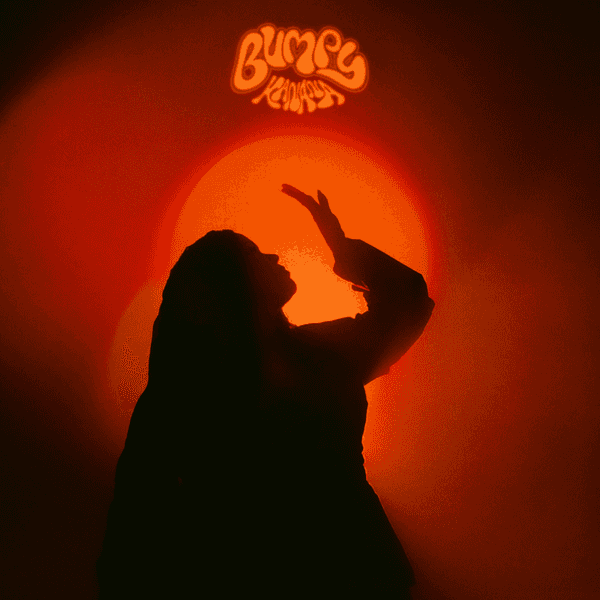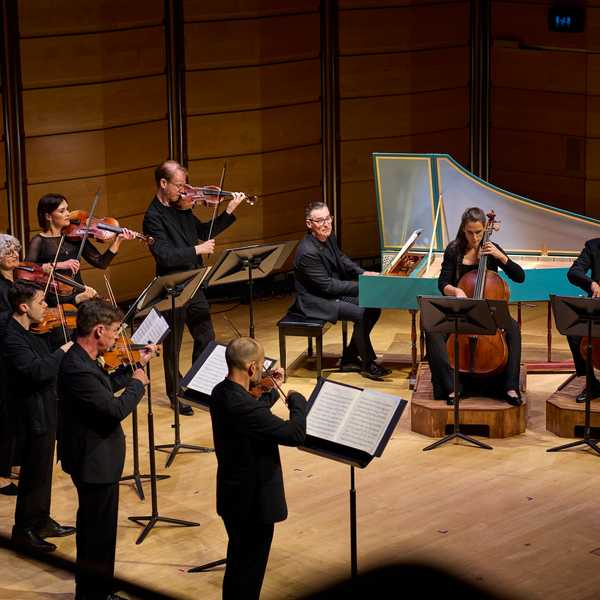
On May 13, 2018 The Midnight Special departed the Budokan Theatre in Tokyo, Japan at 22:14 after a minor delay due to the children on board sharing a extraordinarily long embrace with their mothers, who will be staying at the station. The light of the Midnight Special first shone on the stage of the Budokan theatre as Eric Clapton held his guitar and indulged in his first solo of the night, during one of his favourite blues standard’s “Early in the Morning”, which he has recorded three different versions of. Now, we roll out of the Budokan and let Clapton continue to entrance the Japanese audience with his masterful guitar work and vast repertoire of American music. Our next stop is far away in Memphis, Tennessee at the local YMCA, where a 27 year old Riley B. King, maybe you know him as B.B., is recording a song that would go on to spark his extremely successful crossover career, “3 O’Clock Blues”. Not coincidentally, a song that he would record again 48 years later with the man we just left in Tokyo, Eric Clapton. The song was originally recorded in 1946 by Lowell Fulson, but was taken to the top of the R&B charts by King, perhaps due to the intricate interplay between his singing guitar and urgently slow singing. He reminds us just like Clapton did about the feeling of being down and blue with nobody to love in the early hours of the morning, “Now here it’s 3 O’Clock in the morning, Can’t even close my eyes”. We don’t have to travel nearly as far for our next stop in Aurora, Illinois, just 560 miles north where the Bluebird recording studios are located. It’s 1937 and we are listening to Sonny Boy Williamson I, record yet another blues standard, “Good Morning, School Girl” as the insomniacs have become feverish and the school hour rush begins. In fact this same year, Sonny Boy, was the first blues man to record a version of “Early In the Morning”. Maybe, the famous harmonica player had a predilection for his blues in the morning. The bluesman started out as a country blues player from Tennessee but like many of his peers moved to Chicago to mentor younger artists and find new audiences, taking on the Chicago sound in that transition. Just like his career, the song blends between Chicago blues and Tennessee roots, with comedic interludes from Sonny Boy reassuring the school girls parents that he is just a school boy too. As our morning begins to fade, but maybe not the blues we had, the Midnight Special travels northwest through the USA to beautiful Vancouver on the water. It is 2007 and Brandi Carlile is recording her second studio album, The Story, with a man rooted in the American Blues himself, T-Bone Burnett, the famous producer known for his work on many impeccable soundtracks. Just like B.B. and Sonny Boy, Brandi is lamenting the rising sun, ” The first sign of morning is grey and alarming, It’s so disappointing the day has come so soon”. The “Late Morning Lullaby” by Brandi signifies the end of our morning blues as we are now completely down in the dumps and are in need of nice afternoon pick me up…
The afternoon begins in a delightful mood to counter our morning blues. The Midnight Special slowly pulls in to the Georgetown neighbourhood of Washington D.C. so that our passengers may take a quick lunch break. Why not stop into the famous Georgetown establishment Clyde’s for the happy hour menu… The deal is on for “Afternoon Delight”. Sitting at the table by the window is Bill Danoff, lead singer of the Starland Vocal Band, enjoying his own “Afternoon Delight”. Danoff has stated that his influence for this huge pop culture phenomenon of a song, which has been quoted and referenced in numerous songs, movies, TV shows, and more, was that same happy hour menu at Clyde’s. Since that spark the song took on a somewhat different underlying theme…sex. “I didn’t want to write an all-out sex song … I just wanted to write something that was fun and hinted at sex”, Danoff claims. It seems our morning blues are all but forgotten now. But just as some afternoon delight can wash away the morning blues, it can also lead to a lazy afternoon. The Midnight special departs the D.C. lunch break to follow I-95 north to the next budding city of Philadelphia. It’s August and the humidity is in full form already at 12:20 pm, as Tariq Trotter rolls down Broad St in his Jeep, “”In the summertime I’m risin’ to the shine at 12:20, Ghetto streets are sunny, n***** is gettin’ money, It’s mad hot, and what I got to do I’m not sure of”. The afternoon passes in a haze of laziness and hip hop jazz fusion led by Questlove and the legendary Roots crew until, “Now it’s 3:37 and I still ain’t left the rest, Electric Relaxation from A Tribe Called Quest, With the boom, tokin’, smokin’, coolin’ out, As I parlay in my room cause it’s a lazy afternoon”. As the foggy haze of humidity and smoke begins to whisper and cool, the sun begins to set as the Midnight Special continues north up I-95 to New York City for a very enchanted evening.
The evening is cooling down as the sun sets in 1949 and we pull in right on Broadway and settle into the first row at the Majestic Theatre for the premiere of the new Rodgers and Hammerstein musical, South Pacific. To our surprise a strapping Columbia recording artist will be standing in for the show tonight to sing the song, “Some Enchanted Evening”. The lights dim and Frank Sinatra begins, “Some enchanted evening, you may see a stranger, You may see a stranger across a crowded room, And somehow you know, you know even then, That somehow you’ll see here again and again.” What a surprise! This is surely an evening that we will not forget. The curtain fades and we remain on the edge of our seats. The next scene of the evening is being slowly revealed as time moves forward to 2015. A piano sits prominently at the center of the stage, which is modelled like the streets of Dublin. Red and grey bricks line the alley way and cobblestone street scarily balances the piano at an ever so slight angle. A streetlamp provides the only light opposite the door to the pub and highlights our performer, Dermot Kennedy. This Irishman feels at home busking in these streets, far away from the lights of Vegas and the rat pack. He harkens back to the folk roots of Glen Hansard and Van Morrison while juxtaposing these roots with his powerful spoken word voice and contemporary R&B piano style. This is truly an “Evening I Will Not Forget”. While the melodic piano chords stay level throughout the piece, Kennedy’s voice rises in volume and urgency, subtly screaming, “What’s important is this evening I will not forget , Purple, blue, orange, red, These colours of feeling, give me love, I’ll put my heart in it, I think about it all the time. The lights went out, you were fine, You kinda struggle not to shine, I still love you though, I still love you though, I still love you always”. The crowd erupts in applause as the curtain fades again and the nighttime sounds of New York city sneak through the theatre doors. There is an artist in the audience who hears these lines and breaks down into tears in his seat. Ben Schneider is living in New York City and writing songs in his spare time. But tonight he is at the theatre to forget. To forget the night he met her, she who he still loves, who he will love always.
The Midnight Special begins the final, night, leg of its journey by stepping out of the physical realm of train tracks to glide through mental train tracks, the memories of Ben Schneider, back to the “Night We Met”. He flips through the diary entries over time as he has “all of her and then most of her, some of her and finally none of her”. The tracks begin to screech as he tries to halt the train in its tracks and reverse its direction back to the night he met her, so he could, “And then I can tell myself, What the hell I’m supposed to do, And then I can tell myself, Not to ride along with you”. Instead she sits across the aisle from him teasing his heart with her eyes, for this ride is not over yet. And like any depressed man trying to forget a girl does, he yells to the driver to pull the train over at the nearest bar. He wants to get in as many drinks as he can before “Closing Time”.
For if there is one place Ben can get his mind of the night he met her it is where we are going. For here “we’re drinking and we’re dancing, and the band is really happening”, “we’re lonely, we’re romantic, and the cider’s laced with acid”, and “the whole damn place goes crazy twice, and it’s once for the devil and once for Christ”. The bartender tonight is the late great Leonard Cohen and he is yelling to all the passengers that it is that time of night, CLOSING TIME. The excesses are in full as the booze and drugs and girls flow from the taps. To Ben and Leonard and everyone on the train it appears to be the end of the world as we now it, so naturally we must go out alive. As Leonard fades behind the bar for “Closing Time”, Ben’s memory of the night he met her fades and the only person left on the train is you and I. And now it is “After Midnight”.
The Midnight Special turns its lights down low and pulls into our final station of the trip. The day has been long and we have covered a lot of distance, but now we’re finally going to “let it all hang out”.
Find the songs from this show and the considered but not chosen songs about different times of the day in this Spotify playlist!
Share "The Midnight Special – Early in the Morning to After Midnight"
Copy

